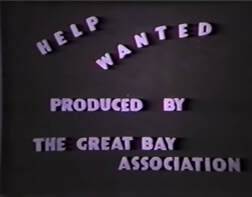 Imagine living in a ward with 200 other people. You all sleep in just two rooms - filled with rows of beds. There are no curtains on the windows. Bathrooms have no stalls or even the merest privacy. For all of you, there is one television and one pool table for entertainment. You rarely go outside. This was life in the Laconia State School. First opened in 1903 as the NH School for the Feeble Minded, the institution was designed as a place for children with disabilities. It began with a population of 58 people, aged three to 21. They were called inmates. By 1916 there were 293 residents but the state refused to increase their funding, despite the obvious need. Overcrowding was a major issue. Staff received little, if any, training. If parents or family members wanted to visit their loved ones in Laconia, they were told they could take them out, but people from the outside were not invited in. In 1952, Richard Hungerford came on as Laconia's superintendent. He was not a medical doctor like the previous directors, but a teacher with a new philosophy who brought a reform movement. He did not discourage parents from visiting, he invited them. Mr. Hungerford wanted to shine a light on the school and empower the parents to help Laconia get the help and funding it needed. In 1956 he even invited groups to come in and photograph the conditions. The Great Bay Association came in with a film crew. The Great Bay Association (later renamed Great Bay Services) was a recently-formed group of parent advocates from the Seacoast New Hampshire area. The association produced a film called Help Wanted, which followed life in the institution, for the first time showing the outside world what Laconia had become. As the film's narrator asks "is this living or mere existence?". The film highlights the indignities inflicted on the residents - like four broken toilets, without seats, being shared in a ward with 43 men. Women who did unpaid work, helping in the children's ward. Working in the laundry included dangerous conditions, and lack of organizations led to frequently lost clothing. There was no space for personal possessions or the comforts of home. An outdated and too-small kitchen was used to create the food for all the residents, leading to shortages and unsafe food. The film closes with the remarks "can we not unite and secure more trained personnel to help Mr Hungerford and the dedicated work he is doing under tremendous handicaps? It is hoped that all who witness this film will come to a fuller understanding of the extent of the problem now existing at Laconia, NH". The film was shown to community groups around the state. For the first time, the state legislature faced outside pressures to support Laconia State School. Trustees of Laconia removed Hungerford in 1960, mostly because of his contentious relationship with the Legislature. They feared it would overall hurt their ability to support the school. However, thanks to Help Wanted and an expose by The Portsmouth Herald, the public were now aware and invested in the condition at Laconia and the movement continued to grow. Hungerford and the parents' association succeeded in bringing some improvements to the school. The two following superintendents - Arthur Toll and Richard Melton - followed the path started by Hungerford. However overcrowding, funding and staffing issues continued. In 1978 the parents' association, with the support of Dr. Melton, brought a lawsuit against the state of New Hampshire. In 1980, a judge ordered the state to provide "the least restrictive care possible" for the residents, and required an immediate reduction in the size of the institution. This "action for independence" affected not only for Laconia but those in community programs. It formed the area agencies and vendor agency system, which includes Great Bay Services, that we have today. On January 31, 1991, Laconia State School closed its doors permanently. This made NH the first state to close their institutions. Help Wanted is careful not to make Laconia's staff into villains. There are those few who took advantage of the situation, but most of the school's staff cared about their residents. The industry continues to constantly change, as people's understanding of those with disabilities improves. Our current "best practices" are constantly evolving, even today as we're learning to add remote technology as a way to effectively bring services to even more individuals. In 2009 another film crew visited the now derelict school, shooting the documentary Lost in Laconia. Footage from Help Wanted is used throughout the film. Lost in Laconia is available in its entirety on YouTube. While it details an important part of our history, the film vividly depicts life in the Laconia State School. It can be very difficult to watch. Great Bay Services has supported several members who lived at Laconia, or at some of the other state institutions in New Hampshire and Maine. We continue to move forward, to improve the lives of not only those we directly serve, but all those with disabilities. - Elizabeth Worboys Burr, Director of Mission Advancement Comments are closed.
|
|
Great Bay Services New Hampshire
23 Cataract Avenue, Suite 1 Dover, NH 03820 603-842-5344 |
Great Bay Services Maine
61 Washington Street, Suite 4 Sanford, ME 04073 207-850-1053 Ext. 2001 |
DEI Statement
Great Bay Services was founded at the time that the US civil rights movement was being born and see our history as being tied to the fight for justice and equity. Throughout our 70-year history we have evolved and grown alongside major diversity legislations and societal changes. Disability is the forefront of our organization, but we encourage and celebrate all forms of diversity, fostering equity, inclusion, belonging, and accessibility for all. Creating an inclusive community where everyone has access to equal opportunities and feels they belong is vital to us as an organization – not just within Great Bay Services but in the world around us. We welcome and encourage all to live happy and healthy lives no matter who they are, where they come from, what they look like, their gender identity, sexual orientation, disability, socioeconomic status, or age.
Great Bay Services was founded at the time that the US civil rights movement was being born and see our history as being tied to the fight for justice and equity. Throughout our 70-year history we have evolved and grown alongside major diversity legislations and societal changes. Disability is the forefront of our organization, but we encourage and celebrate all forms of diversity, fostering equity, inclusion, belonging, and accessibility for all. Creating an inclusive community where everyone has access to equal opportunities and feels they belong is vital to us as an organization – not just within Great Bay Services but in the world around us. We welcome and encourage all to live happy and healthy lives no matter who they are, where they come from, what they look like, their gender identity, sexual orientation, disability, socioeconomic status, or age.
|
Links To Show Your Support
Auction & Gala Bowl-a-thon Donate Events NHGives Past Events Sponsorship Tickets & Merchandise |
Great Bay Services is a 501(c)3 Nonprofit.
All donations are directly used to support our services. EIN: 02-0242389
Our New Hampshire program is sponsored in part by the New Hampshire Council on Developmental Disabilities
|










